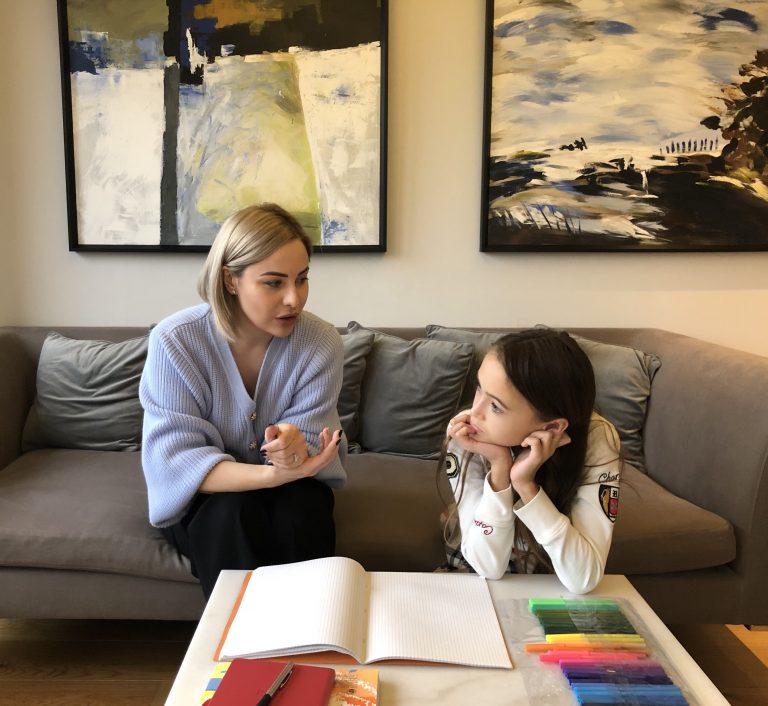Dog assisted interventions for children and young adults.
“Dogs don’t rationalize. They don’t hold anything against a person. They don’t see the outside of a human but the inside of a human.”
– Cesar Millan
A large body of research shows that interactions with dogs have positive effect on children’s and young adults’ mental health and development. Those interactions involve various experiences, such as playing, petting, walking, brushing, and caring for a dog, as well as reflecting on these experiences to achieve particular mental, emotional, or social outcomes.
Supervised interactions with dogs combined with other therapeutic interventions were revealed seventy percent more effective than traditional treatments on its own, such as cognitive-behavioural therapy, in reducing the symptoms of stress, depression, anxiety, and post-traumatic stress disorder among children and adolescents. Researchers posit that two primary mechanisms help in explaining the above findings. Interactions with dogs diminish experiences of adverse mental states because they reduce the loneliness and provide unconditional acceptance and emotional support. From these findings, it was concluded that the success of dog-assisted interventions could be attributed to dogs’ ability to fulfil companionship needs, especially among individuals who communication difficulties and lack of social interactions. Therefore, dog assisted interventions are particularly beneficial for children affected with ASD and ADHD.

In the samples of children and adolescents with depression, anxiety, and stress, it was further revealed that interactions with dogs aid symptom reduction because they help to engage in emotion-focused coping. This form of coping is defined as a tendency to manage one’s distress by engaging in activities that increase the experience of positive emotions and thus help in reducing emotional reactions to stressors. In this respect, dogs were found to help children feel positive emotions, such as happiness, hope and acceptance, which then led to their higher propensity to approach other situations that are likely to build positive emotional states, such as seeking companionship with other people.
Dogs, therefore, can be said to help children of different ages to cope with psychological issues and mental health difficulties by assisting them to reconnect with the outside world, reduce loneliness, improve self-confidence and increase their tendency to engage in emotion-focused coping.
At TRC, based on the initial assessment, whenever considered appropriate, we offer Dog Assisted Therapy to help children and adolescents heal emotional issues and trauma, improve social skills, overcome studying difficulties and behavioural concerns. We have developed our own method, which combines Dog Assisted Therapy with Art Therapy, Play Therapy and Cognitive Behavioural Therapy. We approach each child differently, considering the age, special needs and requests. Some sessions are conducted individually with a child and some are based on parent-child interactions. Only trained and fully vaccinated dogs are engaged in therapy. Our approach to therapy is child-centred, mindful, and play-based. We believe that children learn and develop best when they are relaxed and having fun, when they are surrounded by people attentive to their needs and truly interested in their views and opinions.

-Dog Assisted Therapy
Dogs can have amazing therapeutic benefits for children with complex emotional and behavioural needs. Interactions with dogs in supervised settings teach children empathy and compassion, strengthen social and communication skills, boost self-confidence, improve sensory and emotional regulation, reduce stress and anxiety, help to overcome fears and much more.
-Play Therapy
For children playing is the natural way of learning, communicating and developing.
Therefore, to meet children where they are at developmentally, play therapy is the best modality to create positive change. Games help to motivate and engage children. Through games children reveal their hidden emotions, fears and issues, giving therapist an opportunity to help them.
-Art Therapy
Art therapy provides children with a simpler and more direct way to express themselves than talking therapy alone. Children are naturally creative and comfortable expressing emotions with pencils and paint. Artwork helps to reveal child’s underlying emotions and to establish better conversation between the child and the therapist.
– Cognitive behavioural therapy
Cognitive behavioural therapy (CBT) is a type of talk therapy. CBT helps children to look at their thoughts, feelings, and behaviours, and to realize they have control over it. This therapy can help children understand and register the negativity of their thought patterns and learn how to replace those thoughts with more helpful ones. Discovering new ways of looking at things helps a child learn how to respond differently.
Author – Sofia Likhacheva, Psychotherapist at TRC London




